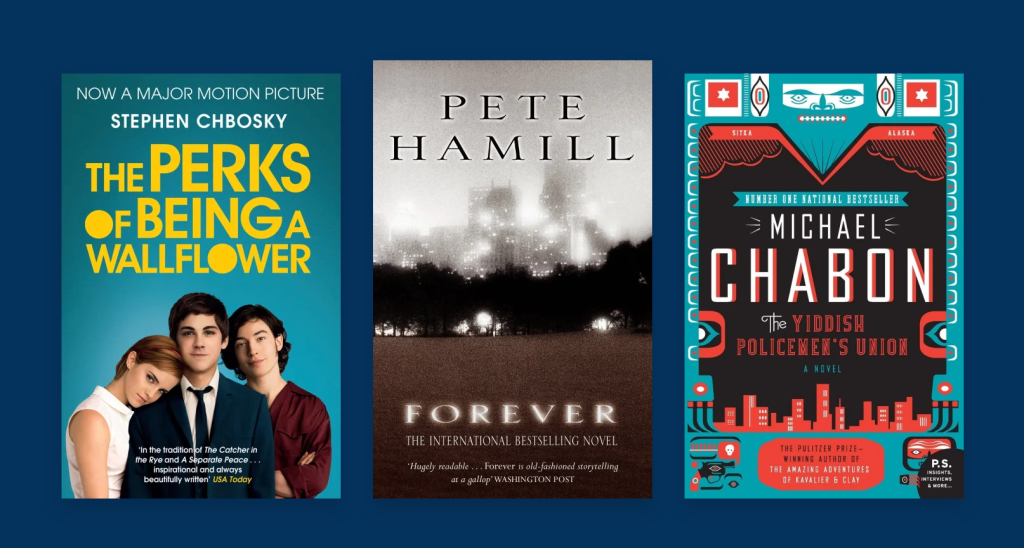Overnight an early spring storm had ambushed the city like a bad memory; torrents of rain washed soil and and cigarette butts and loose stone down the hilly streets into the gutters. Anya called Bubbe Yulia and suggested that her grandmother might like to skip this week’s visit and chat on the phone instead.
But bubbe would not be dissuaded. That afternoon Anya stood in the shelter of her doorway and watched her grandmother trundle up the walk, looking like an old-country babushka with her oversized gray coat and rain bonnet, and now they sat at Anya’s kitchen table, not talking. We could have not talked just as well over the telephone, Anya thought, and you would not have had to go out in the cold.
“I had no flowers to bring you,” Bubbe Yulia finally said.
Anya shrugged. “I had no fruit.” The remains of a blueberry crumble made from canned pie filling sat between them.
After a long moment, a smile lifted bubbe’s dough-soft cheeks. “It is just enough to see you, tateleh.”
And silence fell along with the rain. This worried Anya. They rarely had such gaps in their conversations. It had been as if they strove to make up for their years apart by taking up every moment with words, with memories (mostly Anya’s), and with recipes.
“You are all right, bubbe?”
Bubbe Yulia sniffed. Steadied the fingers of her left hand around her glass of tea—the only Russian influence she allowed, and only because she thought it made the tea taste better, and only after claiming the Ukrainians had done it first. “Fine. I am fine. I have been thinking. About something you asked me. About the man in the drawing.”
Anya perked up. The anticipation of finally knowing even a scintilla of truth thrummed through her, scrambled her thoughts, her questions. “The man. The drawing. The one with the bullet hole? It is a bullet hole, isn’t it? Was that—was he my—?”
“I want you to have it.”
“You want—you are sure?” It seemed too important a thing to give her. To give anyone. “Bubbe, is he my grandfather?”
“Already I told you this. I do not know. If this were a fairy story, then he should have been. He should have been a lot of things. But real life is not so neat and tidy, tateleh.”
Anya’s gaze fell to the crumbs on her plate. She knew this. There were also Russian soldiers. In fairy stories they don’t do the things they did, either. But real life…she shuddered for her grandmother, what she had endured. The only part that was remotely like a fairy story is that she and Anya had found each other again.
“Next time,” Bubbe said, “when it hopefully will not be raining, I will bring it.”
“Of course. The charcoal…” Then she had an idea. “In school I learned Photoshop, how to retouch images. I could remove the bullet hole.” At the alarmed rise of Bubbe’s eyebrows, Anya said, “On a scan. Not the original. I will not touch the original.”
Bubbe’s face relaxed. “Whatever you wish. If it can further your education, even better.”
Anya cleared her throat, picked up her tea, holding it with both hands, feeling its warmth. “You know, Bubbe, a scan is like a copy. You could keep the original, if you like.”
“No.” The sharpness of Bubbe’s tone startled her. “No,” she repeated, softer. “This I give to you.”
“You don’t want…anything? To remember him.”
Bubbe gave a cryptic smile. “From him, I have all I need.”





Leave a comment